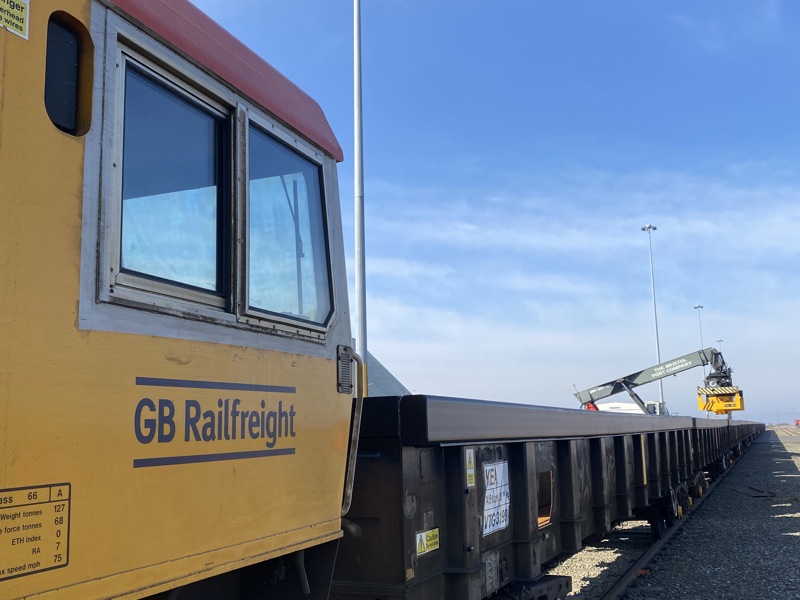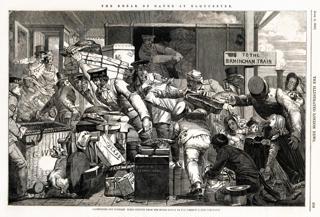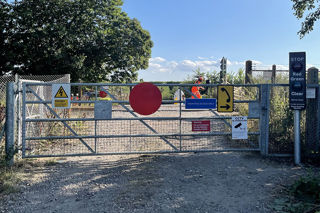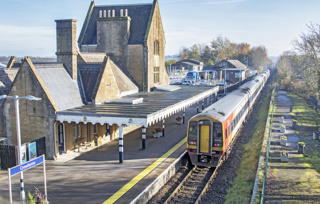
GB Railfreight (GBRf) has started transporting steel slab to Port Talbot alongside existing services operated by DB Cargo UK.

GB Railfreight (GBRf) has started transporting steel slab to Port Talbot alongside existing services operated by DB Cargo UK.
GBRf’s first service between the Port of Bristol at Portbury and the giant steelworks ran on March 3. It will continue until the end of 2027 when Tata Steel’s electric arc furnace (which melts scrap metal) is due to be completed.
The £1.25 billion furnace, which Tata has said is part of its transition to more environmentally friendly production methods, was given planning permission by Neath Port Talbot Council last month.
Alex Kirk, GBRf’s Commercial Director, said: “It’s fantastic news that we’ll be moving steel for Tata for the next two years as they prepare to transition to low carbon steelmaking.”
Battery-powered electro-permanent lifting magnets owned by Bristol Port Company are used to minimise the time it takes to transfer steel slabs onto the trains at Portbury, something Kirk said helped the operator improve its productivity.
Kerys Twinberrow, Tata Steel UK’s Manager of Deployment Operations, added: “Maintaining a reliable supply of materials for our customers is absolutely critical as we transition to green steelmaking. Collaborating with innovative and forward-thinking industrial partners such as GB Railfreight gives us the confidence to focus on implementing our £1.25 billion investment programme to sustain steelmaking in the UK.”
GBRf’s flow joins the services already run by DB Cargo UK from Newport and Cardiff docks.
The steel slab traffic has led to Network Rail working to checking the Down line on the South Wales Main Line is strong enough to carry the heavier trains. Before the closure of the older blast furnaces, loaded steel trains only used the Up line as they were taken out of Port Talbot, whereas the steel slab flows mean loaded trains head into and out of the site.
Login to continue reading
Or register with RAIL to keep up-to-date with the latest news, insight and opinion.


















Login to comment
Comments
No comments have been made yet.